I tried the Peloton Guide and it helped me stay on track with my home workouts
As it turns out, using Peloton's Guide smart camera system provides excellent workout motivation
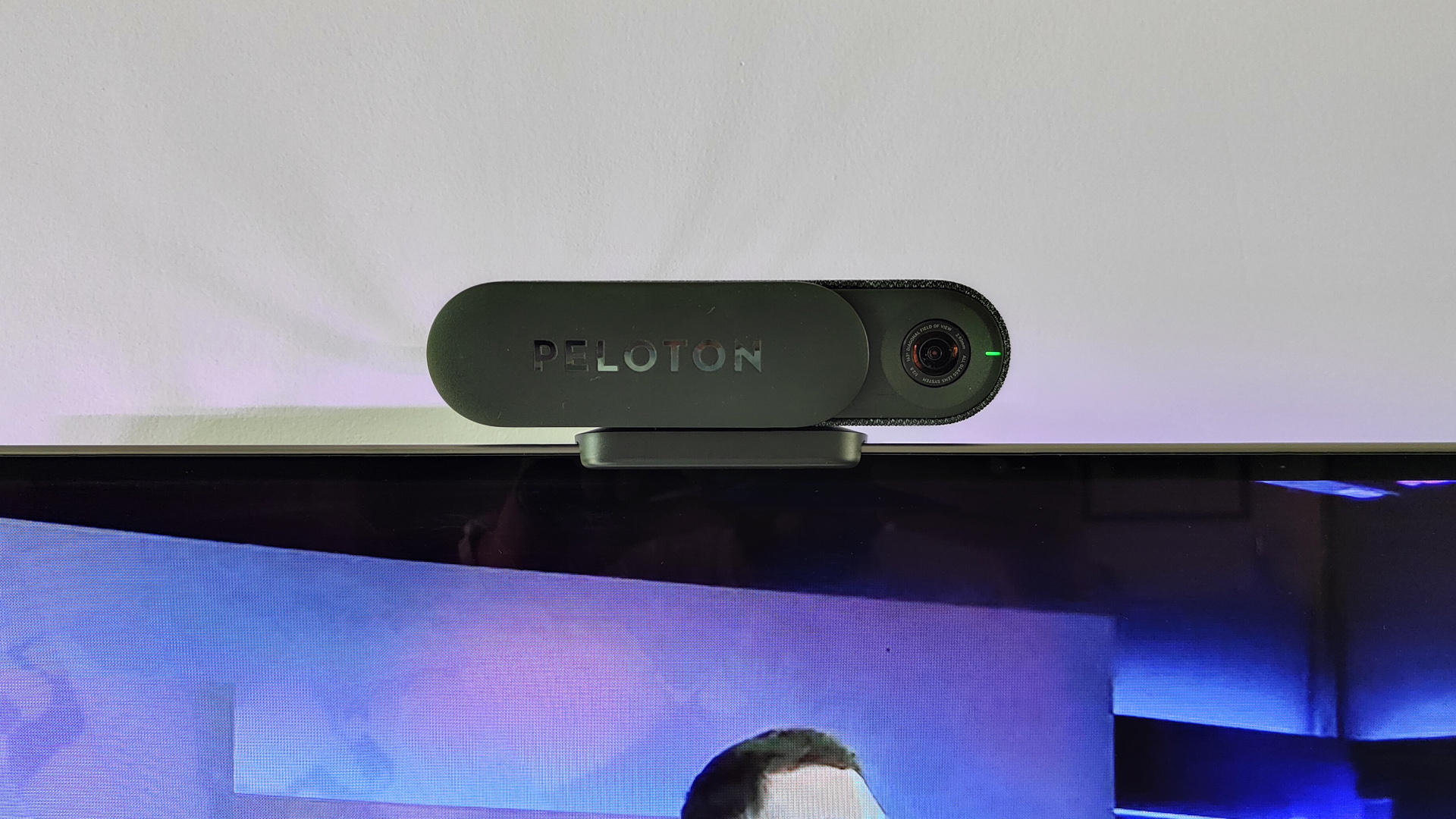
Despite a few niggles such as its inability to count individual reps and offer specific feedback on form, the Peloton Guide is a great bit of kit for those who are struggling to stay motivated with home strength workouts.
-
+
Great monitoring capabilities
-
+
Doesn’t need lots of space
-
+
Super easy to setup
-
+
Effective body-tracking tech and voice controls
-
-
No specific feedback on form
-
-
Movement tracker doesn’t count individual reps
-
-
Limits you to one room; can’t be used across different screens
Why you can trust T3
In what I can only assume was a bid to convert some digital-only users into full-time Peloton equipment owners, the US-based fitness brand has recently launched a gizmo called Peloton Guide and I was among the first people to give it a try at home. Can this connected smart camera, which also happens to be Peloton's first dedicated home gym equipment for strength workouts, help me stay on track with my workouts or is it just a gimmick?
The Peloton Guide is essentially a more accessible way of owning dedicated Peloton equipment that can hold your hand through a workout in a bid to better motivate you. It consists of a webcam that connects to your TV and a remote control to sift through all classes already available on the Peloton app. Thanks to the camera, you can take part in these classes with the help of a ‘Movement Tracker’ tech that uses AI to track your movement and give you a score on how well you’re completing the exercises.
The main focus here, of course, is Peloton’s strength training offering, such as weights exercises, core workouts and HIIT classes, which a lot of people struggle with at home due to knowing the correct form or being motivated enough to complete sets. The idea is that - by gamifying strength workout so that you complete exercises with more accuracy - you’re more likely to stick to a routine and thus give your money to Peloton for the privilege as opposed to a spenny gym membership.
Should you get the Peloton Guide instead of the Peloton Tread or the Peloton Bike+? Read on to find out.
Peloton Guide review: Price and availability
The Peloton Guide was announced in November 2021 and is available to buy in the UK, USA, Canada, Australia, and Germany since April 2022.
Before its physical launch, the Guide was listed at a much more expensive price, starting at £450 / $495. However, this was reduced dramatically ahead of its hitting the shelves, and is now Peloton's most accessibly-priced hardware product yet. In the UK, it costs £275 and for those in the US, it retails for $295. Bargain!
In the UK, there are finance options also available from Peloton’s official shop, starting at £12/month for 24 mos with 0% APR. There’s also a bundle available that includes the Guide, an official Peloton workout mat and three sets of Peloton dumbbells weighing between 2.3 kg to 13.6 kg.
In the US, finance options start at $13/month for 24 months, also at 0% APR. There are no bundles available from what we can see.
Of course, the initial purchase isn’t the only cost when buying the Guide. A monthly membership will set you back £39 / $39 to give you access to all the classes from any device.
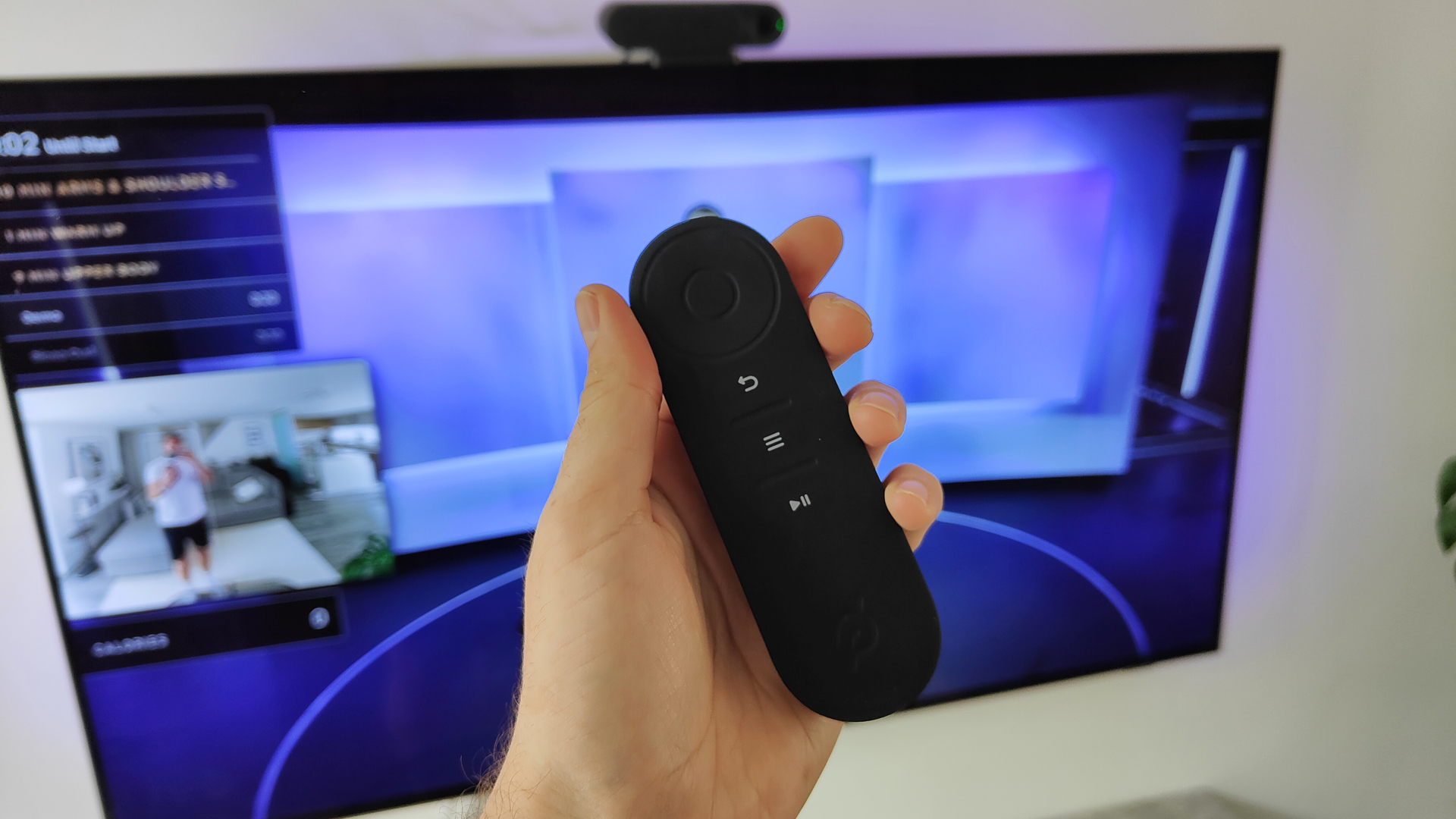
Peloton Guide review: Setup
Setting up the Guide on a TV with the included remote and HDMI cable was simple enough and done in no time at all. Although the only tricky part is ensuring you have an appropriate space around your TV set at home that is big enough to accompany a workout or at least can be rearranged easily when you do want to get your sweat on.
Peloton suggests having 4.5 by 6 feet of “unobstructed space” so that the camera can correctly read your movements. That might not be so easy for city dwellers occupying tiny spaces, but with a little moving around of furniture, it can be achieved by most.
The camera unit needs to be mounted 3 to 6 feet from the ground, ideally on top of an anchored TV or on a stable surface of similar height. All you have to do is ensure that the lens is pointing toward your workout area, making sure there are no obstructions. Then it’s ready to be put through its paces.
The downside of this camera needing to be set up on a TV means it’s limited to one space at home, and so can’t be moved to other spaces to be used with a tablet, for instance.
Peloton Guide review: The workout experience
Since the Peloton Guide is centred around the brand’s strength training offering, the strength classes are the ones you’ll see first when logging in. On top of these, there are also yoga, pilates, and meditation options. Each of these can be completed as a beginner, intermediate or advanced user alongside the option to complete them as live or recorded classes.
When choosing a class, you’ll also have the option of different workout durations, which can be filtered further by preference in terms of music and instructor. This is all done via the bundled remote control and is easy to use in the conventional sense but even more fun to use via its built-in voice control, which works surprisingly well.
The guide uses the hardware’s camera to take a live video of you and place you in the screen, side by side with the instructor. You can opt to change this, too, if you like, having the video of you larger and the instructor smaller and vice versa, or even having the camera off completely. Although we don’t really see the point of buying a Guide if that’s your preference. Another nice feature is that the Guide’s wide-angle lens means you don't need to be too far away from the camera and even if you are, it will zoom in on you so you appear large enough on-screen. This is what makes it versatile for different room setups.
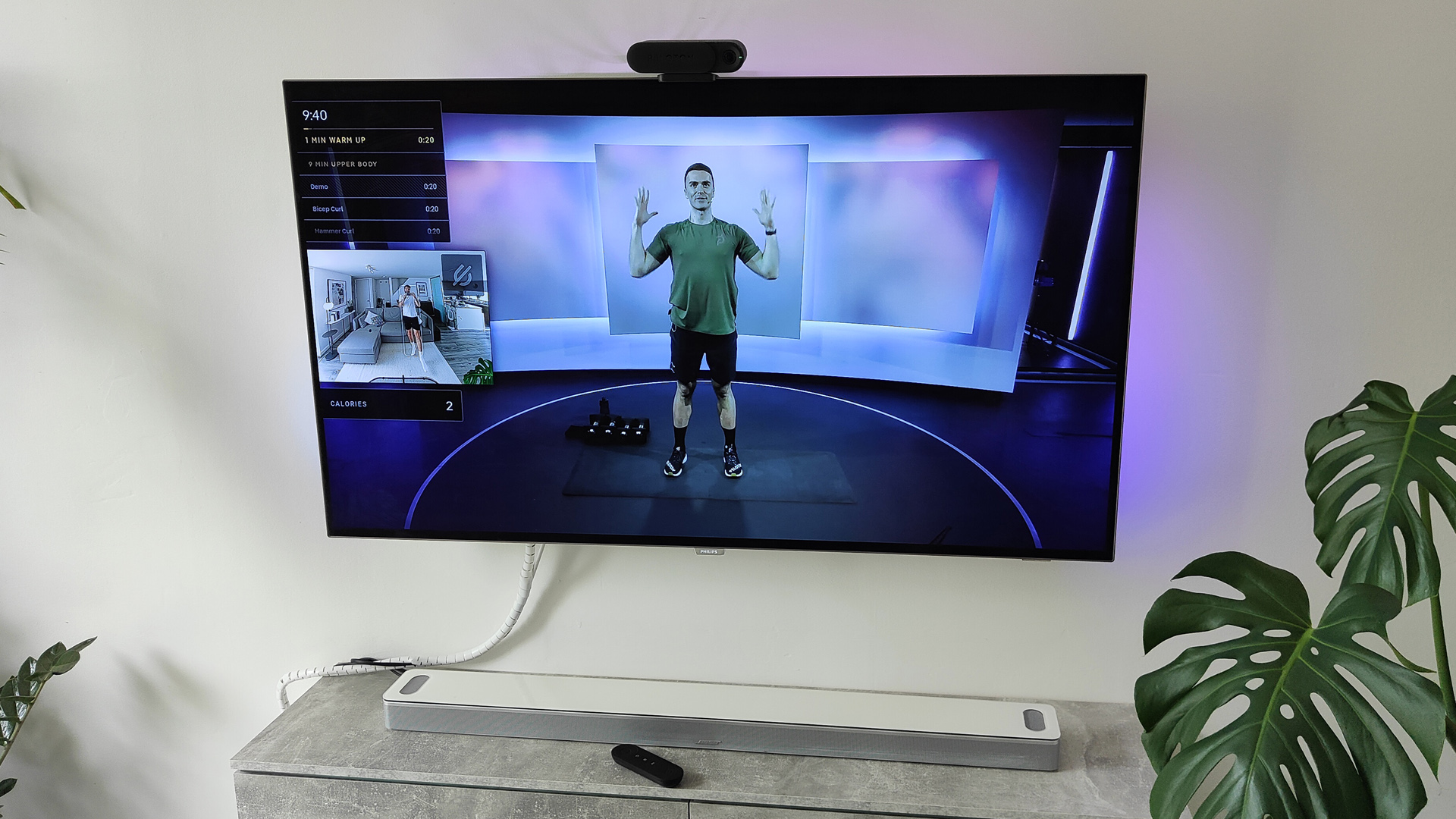
Throughout a class, the instructor tells you what moves are coming next and which weights you’re going to need in advance of the move so you can be prepared, which is a nice touch. The best part of using the Guide however is the movement tracker. This works via an on-screen sweat drop icon, which is filled with, er, sweat the more you move. This essentially tracks how much you are moving during each set as supposed to tracking individual reps, which we think would work better for accuracy’s sake.
Still, it is able to keep you motivated because if you take a break, the sweat drop won’t fill up, and you won’t receive any ‘Award Badges’, which are basically little icons you can collect that are handed out throughout each exercise if you manage to keep up with the trainer. Fitness gamification at its finest!
When your workout is over, you’ll receive an overview of your stats, including calories burned as well as information from the ‘Body Tracker’ – a function that tells you which muscles you’ve worked the most. If you want to ensure your stats are more accurate, you can connect most Bluetooth-enabled trackers to the Peloton system. These have to be ANT+ enabled, however.
I regularly use our Polar Verity Sense armband and it works brilliantly. Peloton now how its own heart rate armband, too, which works effortlessly and connects to everything right away with no fuss. Connecting a heart rate band like this is recommended as it means you can see your heart rate zones on the screen throughout each workout.
One thing I felt was missing here was any kind of specific feedback on form. It would have been nice to have seen either throughout or at the end of a class, a rundown of which moves you aren’t quite performing correctly and how you could improve. Especially since this is the part of fitness a lot of people aren’t good at, especially those who aren’t lucky enough to have ever had a private PT. Although I guess this is something Peloton could always introduce later down the line in the form of a software update if the AI improves.
Peloton Guide review: The platform
In order to enjoy the Peloton Guide, users have to sign up for the firm’s fitness streaming service, which costs £39 / $39 per month. I'm aware that’s definitely not cheap - especially when you’ve just forked out hundreds for the Guide itself - but if you take into consideration the number of classes available on this platform, across multiple fitness disciplines, there’s a lot on offer. Compare that to how much you could spend per month going to multiple HIIT studios or fancy gyms and you’re definitely saving in the long run.
The UI, menu system and class content that Peloton produces are all exceptionally premium, fun and engaging. There’s a wide range of instructors from both the US and the UK, all with different personalities and music preferences. Yes, there’s your dose of expected motivational speeches, but not all instructors as are corny as you’d expect. And with so many, you’ll definitely find an instructor that fits your vibe. There really is something for everyone available here.
In my experience, the Peloton Guide platform works seamlessly and it’s evident that its UI has been well thought through. It’s intuitive, delivering heaps of information and fitness data without overwhelming you. The only annoying thing here is that there’s no dedicated space for Peloton Challenges, you’ll have to do that separately on the Peloton app that you’ll use with a Bike or Tread device.
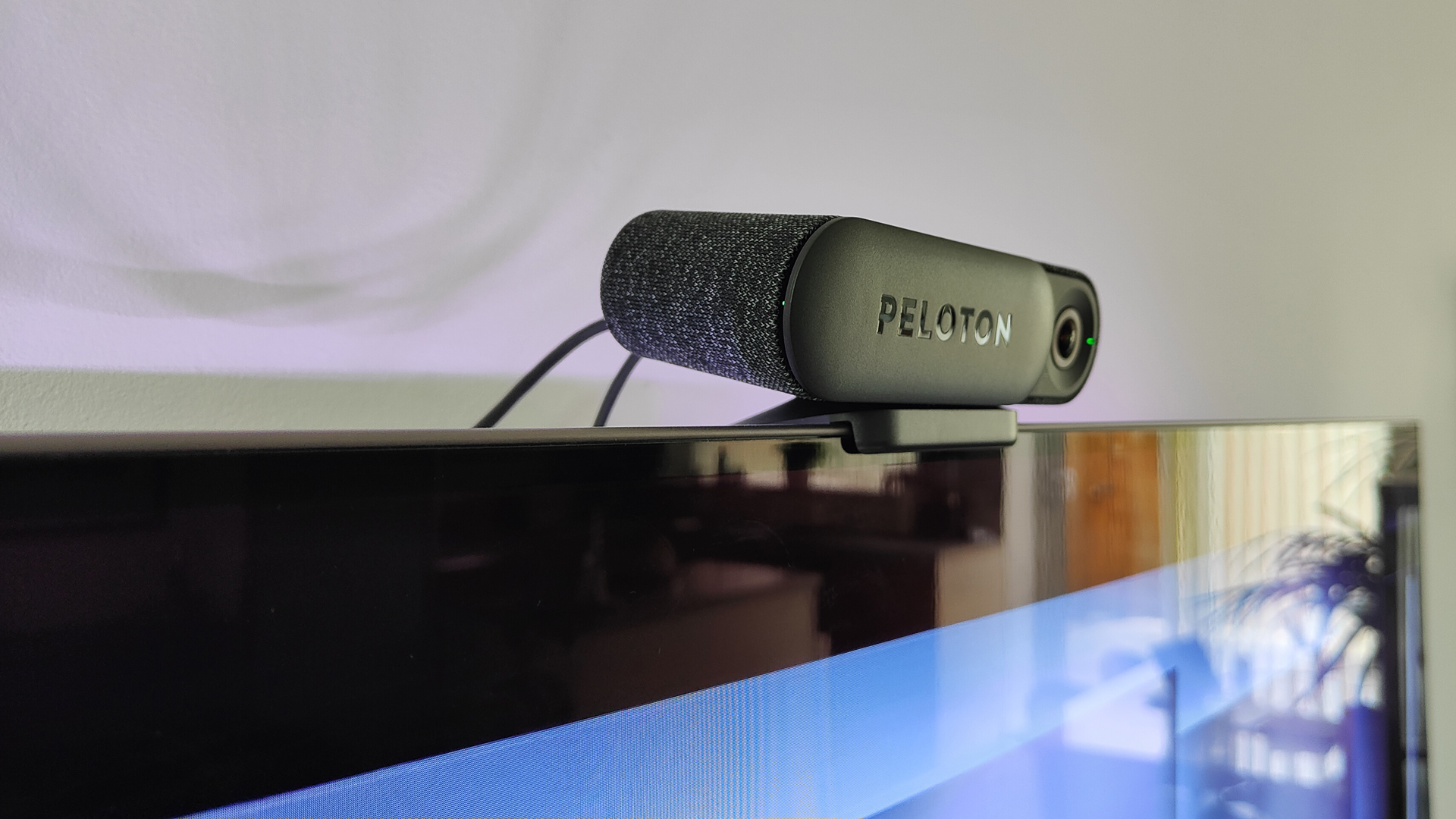
Peloton Guide review: Verdict
Despite a few niggles such as its inability to count individual reps and the need for a dedicated space, the Peloton Guide is a great bit of kit for those who are struggling to stay motivated with home strength workouts, or you’re just not getting enough free time to take advantage of a gym membership. Classes and the Peloton platform are of super high quality and the camera works well at detecting movement.
However, I feel it could benefit greatly from more accurate scoring with more specific feedback, especially when it comes to form. I hope this is something Peloton will introduce at a later date. In the meantime, I don’t think most people will be disappointed with the Guide and all the classes its platform has on offer.
Sign up to the T3 newsletter for smarter living straight to your inbox
Get all the latest news, reviews, deals and buying guides on gorgeous tech, home and active products from the T3 experts
Lee Bell is a freelance journalist & copywriter specialising in technology, health, grooming and how the latest innovations are shaking up the lifestyle space. From national newspapers to specialist-interest magazines and digital titles, Lee has written for some of the world’s most respected publications during his 11 years as a journalist.
-
 New Casio G-Shock is half sci-fi nightmare, half Y2K chic
New Casio G-Shock is half sci-fi nightmare, half Y2K chicI hate how much I love this
By Sam Cross Published
-
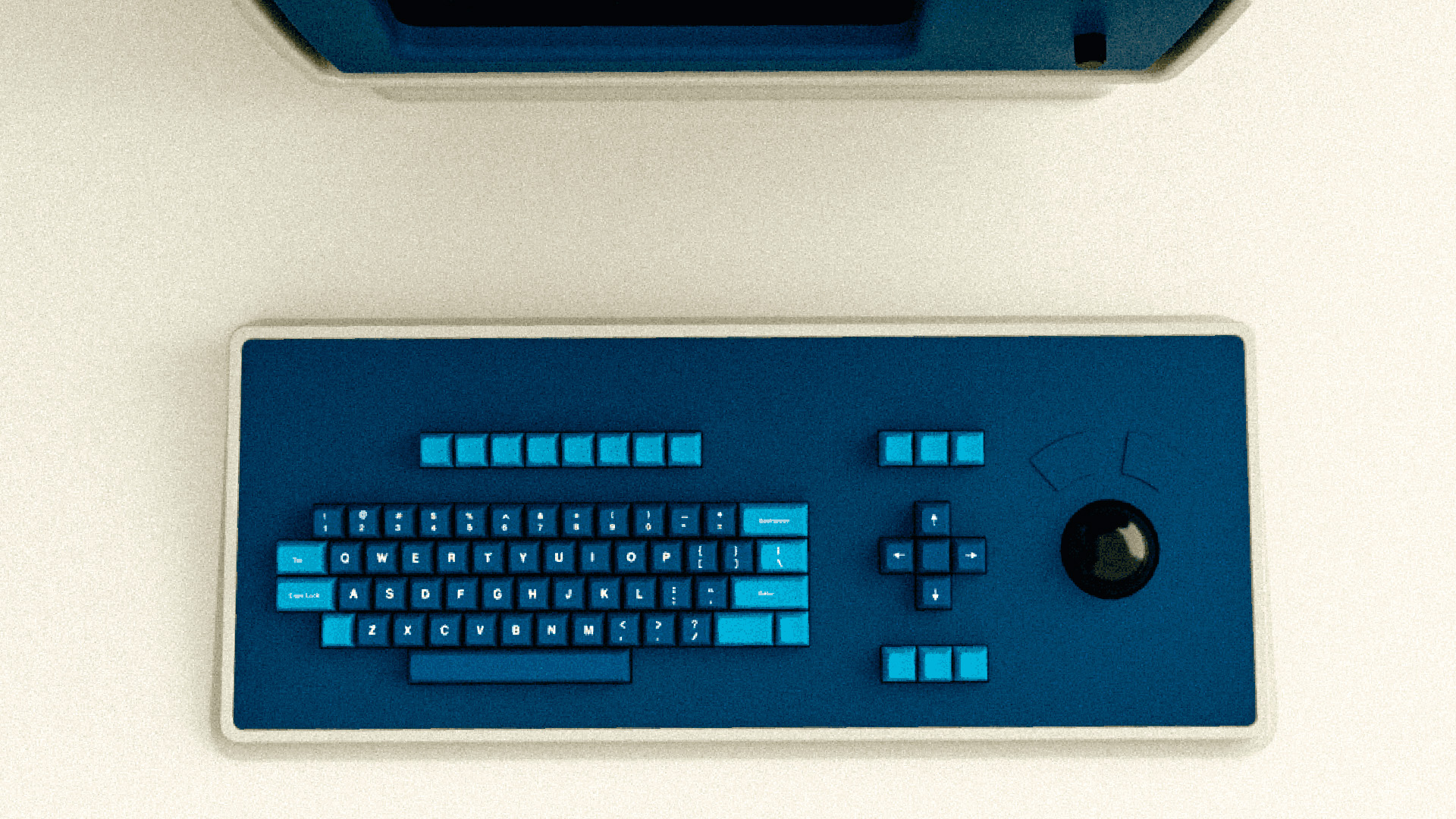 Apple's Severance computer may have been a joke, but the keyboard is coming for real
Apple's Severance computer may have been a joke, but the keyboard is coming for realTell us where we can sign up!
By Britta O'Boyle Published
-
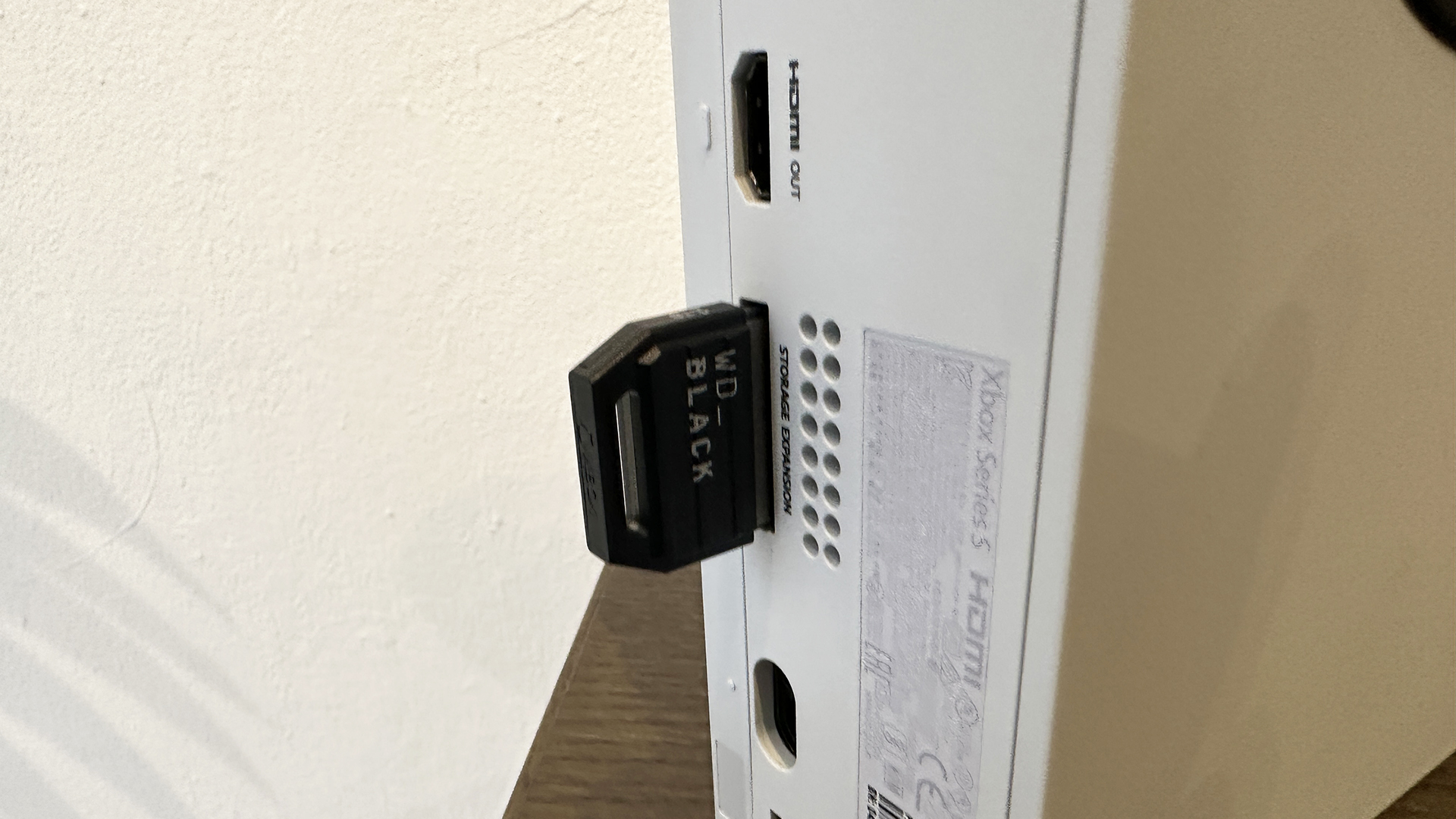 Xbox Series X/S storage space problems solved by a sneaky Xbox Game Pass update
Xbox Series X/S storage space problems solved by a sneaky Xbox Game Pass updateYou may never have to buy external storage again
By Rik Henderson Published
